 That Anthropology and International Relations (IR) share a range of common interests is increasingly becoming more obvious. In consequence there is a thriving debate about concepts, methods and empirical observations between both disciplines. A growing number of researchers adopts the ethnographic spectrum of methods to study internationalized politics, ranging from bureucracies such as the police, to development work or international organizations and global governance. On June 10-12th I attended a workshop hosted by the University of Bremen and held at the Hanse Wissenschaftskolleg in Delmenhorst in which a range of forthcoming studies at the intersection of anthropology and IR were discussed. The organizers phrased the rationale for the workshop well, when they argued that “The promise of an anthropology of internationalized politics then is that the enlarged empirical basis and an enlarged theoretical language would allow for new theoretical growth. It would be based on an enlarged empirical experience (Erfahrung) and not just derived from conceptual discussion alone or from theoretical deduction that are then checked against a mass of numerical data. Such a research approach would start out with an enlarged understanding of what empirical data is, and it would try to interpret it with an enlarged theoretical vocabulary.”
That Anthropology and International Relations (IR) share a range of common interests is increasingly becoming more obvious. In consequence there is a thriving debate about concepts, methods and empirical observations between both disciplines. A growing number of researchers adopts the ethnographic spectrum of methods to study internationalized politics, ranging from bureucracies such as the police, to development work or international organizations and global governance. On June 10-12th I attended a workshop hosted by the University of Bremen and held at the Hanse Wissenschaftskolleg in Delmenhorst in which a range of forthcoming studies at the intersection of anthropology and IR were discussed. The organizers phrased the rationale for the workshop well, when they argued that “The promise of an anthropology of internationalized politics then is that the enlarged empirical basis and an enlarged theoretical language would allow for new theoretical growth. It would be based on an enlarged empirical experience (Erfahrung) and not just derived from conceptual discussion alone or from theoretical deduction that are then checked against a mass of numerical data. Such a research approach would start out with an enlarged understanding of what empirical data is, and it would try to interpret it with an enlarged theoretical vocabulary.”
Category Archives: Events and Presentations
The Indian Ocean – One Region or many?
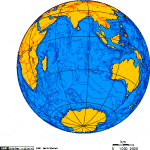 The politics of maritime space is only rarely in the focus of international fora. Conferences devoted to the Indian Ocean region are a rare event, especially in Europe. On June the 9th the German ministry of Foreign Affairs in collaboration with the Friedrich Ebert Stiftung and the Robert Bosch Stiftung, organized a one day conference on the region. The conference was titled “The Indian Ocean: A Maritime Region on the Rise.” The background of the conference was that Germany’s foreign policy currently is in a phase of renewal. After decades of searching for Germany’s place in the world, the foreign office now wants to think foreign policy differently and aims to set new impulses, identify new themes and new spaces to strengthen international cooperation. Part of this innovation agenda, is Germany’s new focus on maritime security, as evidenced in the G7 declaration from earlier this year. Continue reading
The politics of maritime space is only rarely in the focus of international fora. Conferences devoted to the Indian Ocean region are a rare event, especially in Europe. On June the 9th the German ministry of Foreign Affairs in collaboration with the Friedrich Ebert Stiftung and the Robert Bosch Stiftung, organized a one day conference on the region. The conference was titled “The Indian Ocean: A Maritime Region on the Rise.” The background of the conference was that Germany’s foreign policy currently is in a phase of renewal. After decades of searching for Germany’s place in the world, the foreign office now wants to think foreign policy differently and aims to set new impulses, identify new themes and new spaces to strengthen international cooperation. Part of this innovation agenda, is Germany’s new focus on maritime security, as evidenced in the G7 declaration from earlier this year. Continue reading
Concepts at Work
Concepts are one of the main material of international politics, yet, often is the task to study them left to historians and political theorists. In order to correct that, the Workshop “Concepts at Work” (Jerusalem, 31.5-1.6.) intends to broaden the picture. Organized by Piki Ish Shalom from the Hebrew University of Jerusalem a rich set of studies on concepts such as self-determination, international community risk, sovereignty, or homeland will be discussed. At the workshop I will present a first sketch on the life of the concept of blue economy and how it has shifted meaning over the past 5 years. The workshop program is available here.
ReCAAP ISC Piracy and Sea Robbery Conference 2015
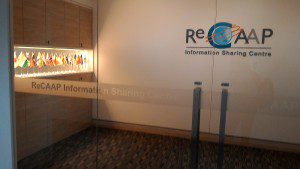 On Thursday, 22nd of April I will be attending the annual ReCAAP ISC piracy conference. The conference is held as part of the Singapore Maritime Week and is this year titled “Separating Fact from Fiction”. It is organized together with BIMCO, INTERTANKO, and S. Rajaratnam School of International Studies (RSIS). The event features two scenario-based panel discussions using case studies based on real incidents occurred in Asia. Speakers representing the shipping industry, IMO, enforcement agencies and relevant governmental agencies are invited to speak about their roles, expectations and challenges in each scenario. This will be an exciting opportunity to see the ReCAAP ISC in action as they work on disseminating best practices and awarness raising.
On Thursday, 22nd of April I will be attending the annual ReCAAP ISC piracy conference. The conference is held as part of the Singapore Maritime Week and is this year titled “Separating Fact from Fiction”. It is organized together with BIMCO, INTERTANKO, and S. Rajaratnam School of International Studies (RSIS). The event features two scenario-based panel discussions using case studies based on real incidents occurred in Asia. Speakers representing the shipping industry, IMO, enforcement agencies and relevant governmental agencies are invited to speak about their roles, expectations and challenges in each scenario. This will be an exciting opportunity to see the ReCAAP ISC in action as they work on disseminating best practices and awarness raising.
Experimental Governance in Practice. Talk @ NUS Polsci
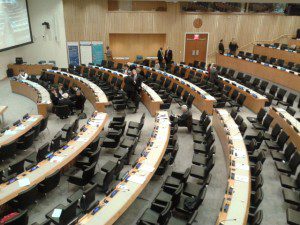 On April, 16th, I will give a talk at the Department of Political Science of NUS. In the talk titled “Experimental Governance in Practice. The Case of Counter-Piracy off the Coast of Somalia” I will present some of the insights that can be gained from counter-piracy for global (security) governance in broader term. The abstract is below:
On April, 16th, I will give a talk at the Department of Political Science of NUS. In the talk titled “Experimental Governance in Practice. The Case of Counter-Piracy off the Coast of Somalia” I will present some of the insights that can be gained from counter-piracy for global (security) governance in broader term. The abstract is below:
“International actors increasingly turn to global governance arrangements that are informal and experimental in character. The majority of research so far tends to describe institutional settings rather than analyse what actually happens in such arrangements. This presentation introduces the results from a detailed case study on the Contact Group on Piracy off the Coast of Somalia. The study draws on premises from the practice turn in International Relations Theory and an ethnomethodological tool kit. It reveals what experimenting means in practice and outlines what the broader consequences of the turn of policymakers towards experiments will be.”
The seminar takes places at Thursday, 16th of April 2015, 3.30pm to 5.00pm, Block AS1-04-01, PS Staff Meeting Room, Department of Political Science, NUS.
Workshop on European Diplomatic Practices
This week I attended the workshop “European Diplomatic Practices: Patterns, Approaches, Methods” at the Swedish Institute of International Affairs, Stockholm. The workshop brought together a range of scholars working with tools from International Practice Theory, notably the community of practice approach to analyze European diplomacy. The workshop revealed a fascinating plurality of how one can draw on practice theory to study diplomacy, and spurred an interesting discussion on methods, but also on some core puzzles, such as how to grasp the relation between routine and change, or knowledge and action.
ESDC course on piracy in Rome
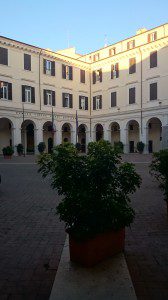 The European Security and Defense College (ESDC) held a course on contemporary piracy in Rome. The program was attended by over 30 professionals, many of which senior, from across Europe, and covered the full spectrum of the challenges of contemporary piracy, ranging from deterrence, surveillance and interruption at sea, prosecution and transfer of suspects to capacity-building and the role of private security companies.
The European Security and Defense College (ESDC) held a course on contemporary piracy in Rome. The program was attended by over 30 professionals, many of which senior, from across Europe, and covered the full spectrum of the challenges of contemporary piracy, ranging from deterrence, surveillance and interruption at sea, prosecution and transfer of suspects to capacity-building and the role of private security companies.
I participated in the two final days of the week long program and gave a lecture on capacity building based on my article forthcoming in Global Affairs and on the Lessons Learned Paper I recently wrote on the issue. I especially stressed the importance for recognizing that capacity building is a contested term, that it has political effects and discussed the intricacies of ownership.
Research Seminar: “Bursts! Theoretical Fashions in the Study of International Relations” in Copenhagen
 On Wednesday, 8/10/2014 we will discuss the paper titled “Bursts! Theoretical Fashions in the Study of International Relations – A Bibliometric Analysis” at a Research Seminar of the Center for Advanced Security Theory (CAST) which I coauthored with Felix Bethke (Universität Duisburg-Essen).
On Wednesday, 8/10/2014 we will discuss the paper titled “Bursts! Theoretical Fashions in the Study of International Relations – A Bibliometric Analysis” at a Research Seminar of the Center for Advanced Security Theory (CAST) which I coauthored with Felix Bethke (Universität Duisburg-Essen).
In the seminar we aim at discussion the following: What are the drivers of scientific progress and intellectual innovation? Usually we peer to the philosophy of science and seek some sort of rational and logical answer to this question and argue that somehow we move closer to the truth. But scientists are humans, too. And perhaps even very social ones. Relying on an understanding of science as a social practice, we argue in this paper that scientists love fashion. We take International Relations as an example and show that the progress and evolution of this discipline can be read as a sequence of fashions. We draw on the results of a burst detection analysis. Understanding researchers as fashionistas, not only challenges some conventional wisdom about how science works, but raises a set of questions, such as, whether we are working in more fast-paced and complex disciplinary environments.
For registration- or more information about CAST Research Seminars, go to events. Contact me by email to receive a copy of the draft paper.
Workshop on Maritime Security Studies in Copenhagen
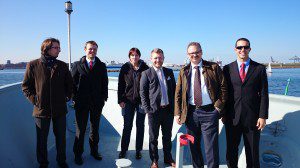 From the 23rd to the 24th of September we met in Copenhagen to discuss the contours of maritime security studies, different theoretical perspectives on the maritime dimension of security as well as a range of regional arenas. The workshop was a first step to a book manuscript that reviews the challenges of maritime security and how academia can contribute to addressing them. The workshop was hosted by the Centre of Military Studies, Copenhagen University and featured a visit to the Danish Naval Academy and a tour on a Diana class patrol vessel. Participants in the project include Jeremy Black (Exeter), Douglas Guilfoyle (UCL), Carolin Liss (PRIF), Christian Wirth (Griffith), Francois Vrey (Stellenbosch), Thomas Horn Rasmussen, Stale Ulriksen, Basil Germond (Lancaster), Aaron Casavant, Geoffrey Till (King’s), Johannes Kidmose and Lars Bangert Struwe.
From the 23rd to the 24th of September we met in Copenhagen to discuss the contours of maritime security studies, different theoretical perspectives on the maritime dimension of security as well as a range of regional arenas. The workshop was a first step to a book manuscript that reviews the challenges of maritime security and how academia can contribute to addressing them. The workshop was hosted by the Centre of Military Studies, Copenhagen University and featured a visit to the Danish Naval Academy and a tour on a Diana class patrol vessel. Participants in the project include Jeremy Black (Exeter), Douglas Guilfoyle (UCL), Carolin Liss (PRIF), Christian Wirth (Griffith), Francois Vrey (Stellenbosch), Thomas Horn Rasmussen, Stale Ulriksen, Basil Germond (Lancaster), Aaron Casavant, Geoffrey Till (King’s), Johannes Kidmose and Lars Bangert Struwe.
At the workshop I presented my paper titled “What is Maritime Security”. In the paper I argue to understand maritime security as a “buzzword”. This implies that to some degree everyone can agree on the importance of maritime security, but on the other side, the concept also hides controversies. Arguing that striving for a universal definition of maritime security is a useless project, I outline three different theoretical strategies to grasp the meaning of maritime security. The first is based on semiotics and explores the relations of maritime security to other concepts such as seapower, marine safety, blue economy or resilience. The second is based on the securitization framework and studies how different issues are made part of the maritime security agenda. The third is based on practice theory and asks what actors do in the name of maritime security. Please contact me to receive a copy of the draft.
Lecture Series on Knowledge Production in Copenhagen
From the mid of September to October I will be giving a series of lectures in the module Knowledge Production and Evaluation of the newly launched MSc Programme in Security Risk Management at the University of Copenhagen. In the lectures I intend to explore a number of key categories of knowledge production, starting from different concepts of epistemic practices, epistemic spaces and devices, to actor-network theory as an approach to the study of knowledge production and controversies and a detailed investigation of quantification and big data. The lectures are related to my forthcoming article on the epistemic practices of piracy and ongoing work on the epistemic dimension of global governance which is part of my current case study on the Contact Group on Piracy off the Coast of Somalia.